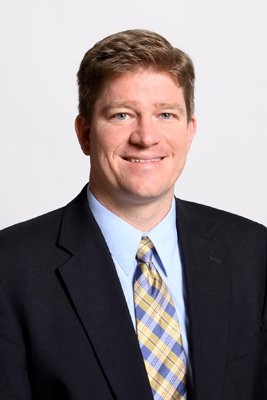
Keith Erekson
Keith Erekson, current director of the LDS Church History Library, has worked really wherever history could be found or needed. When faced with new opportunities, he’s thought, “let’s go there, and let’s see what we can do.”
In this episode of the LDS Perspectives Podcast Russell Stevenson sits down with Erekson and discusses preserving the artifacts of, reconstructing, and interpreting history.
“We always like to say,” declares Erekson, “‘Well, history’s 20/20. It’s hindsight.’ No, it’s not. We’re just here in 2017, and we’re doing our best.”
He urges a different view. If we break that mindset that we know it all and just say, “I’m looking for the best I can find, and tomorrow I’ll find a little more — and next year I’ll find a little more,” then we don’t get discouraged when something changes because that’s the way it works: it’s always changing. We’re always learning.
His experience working outside of the LDS tradition has shown him that Mormon are not so different than other social groups. We have challenges with our history — the same challenges that exist with every other history.
There are sources missing from Joseph Smith’s experience that we wish were around. Well, there are sources missing from Lincoln’s experience and from Washington’s experience — that’s just how history works. The past is gone. It’s not some great conspiracy that Joseph Smith’s sources are gone — that’s just what happens. The past is past.
In the present, no matter what we’re talking about — whether the 19th century or the Middle Ages — we’re trying to reconstruct it and put it back together, and figure out what it means.
Sometimes people see the Church Archives as sort of a mystical place full of mysteries, but they’d be disappointed; inside the archives, it is quite boring with its concrete walls, metal shelves, and acid-free boxes.
The mission of the church archivists is to collect everything by and about the church, but particularly things by the church. That means they want every copy of the Book of Mormon in every language and in every edition. They want every handbook and every manual. So in some ways, the inside of the archive looks like the library in a local church building, except it’s a little more organized and the scriptures aren’t all destroyed because some deacons played with them.
One takeaway from the ordinariness of the archives is that Mormon history is not as exciting as we think it is. We do have fantastic stories in our history, but more often than not they tend to be exaggerations of events. These types of inflations happen as the generation involved in an event — and this happened in World War I and World War II — starts to pass away, there becomes an awareness: “Oh, we’re losing something; we ought to catch it.” But a lot of times, they’ve already lost it.
Erekson urges listeners to be critical consumers and become aware of how history works and then to be on the lookout for signs of good scholarship. One of the most basic ones is source citations. They’re not there just for fun. They’re there to say the author spent 10,000 hours to write a sentence.
As consumers we needn’t rush to conclusions. The past is over; we’ve got time to think about it.
This material re-posted with permission of LDS Perspectives Podcast.


